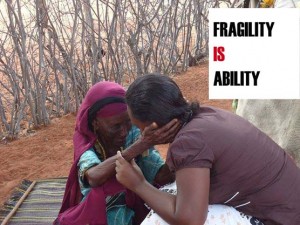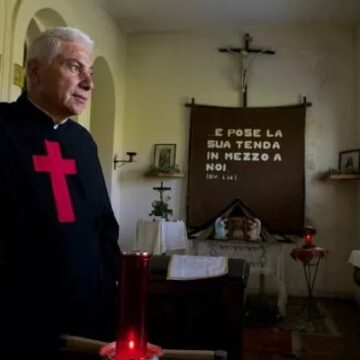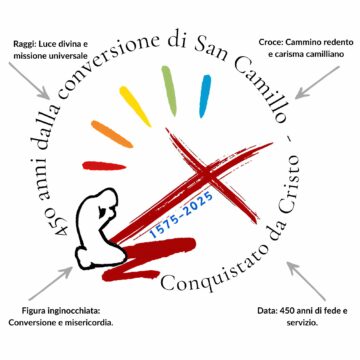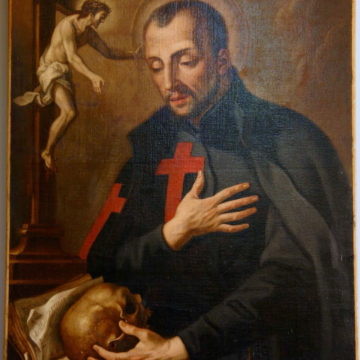 The Third International Day for the Victims of Disasters of 13 October 2014 is by now upon us. It continues our reflections which start from the words that Pope Francis addressed to us last February: ‘nature challenges us to be supportive and attentive as regards the stewardship of the creation, to prevent, as far as this is possible, the gravest consequences as well’.
The Third International Day for the Victims of Disasters of 13 October 2014 is by now upon us. It continues our reflections which start from the words that Pope Francis addressed to us last February: ‘nature challenges us to be supportive and attentive as regards the stewardship of the creation, to prevent, as far as this is possible, the gravest consequences as well’.
In particular we are inviting everyone to reflect upon the words of Pope Francis: ‘do not be afraid of frailty’.
Not being afraid for the Camillian Task Force could mean continuing to look for new answers to the ‘signs of the times’ beginning with careful listening to those people and/or communities that are ‘voiceless’ and with not being satisfied with only giving things in line with the logic of the hand outs of charity.
The evangelical style, in its manifold signs and nuances, show Jesus, when meeting men and women immersed in need, crushed by their physical, environmental, moral or cultural frailties, offering first and foremost not things but a ‘human space’ of listening and welcome; he encountered ‘faces’ that were often disfigured by death-inducing violence. Christ did not work according to the logic of a good that comes down from on high but, rather, the logic of shared humanity, a ‘miseri-cordia’ (mercy) which – as the word itself in Italian reminds us – arises from an encounter of a heart with the misery of someone else, of whatever nature it may be: a mercy which without denying evil and the hard work of so much resistance, allows the person who lives at the margins, at the outskirts, to find renewed resources so as to walk in the middle of the street, where the truest existence flows.
The Camillian Task Force has as its objective to bear witness to this merciful love of Christ for those people who have been almost completely deprived of all human, affective and material, resources by the fury of natural disasters and/or disasters caused by man himself and who need skilled human, health-care and pastoral support. Special sensitivity and professionalism is amply given – in line with the holistic approach – to the human and emotional accompanying of the victims, offering them the shared opportunity of empathetic listening.
If St. Camillus were still alive, would he not engage in similar projects to embrace all these challenges as well as the disaster victims themselves?
Let us rise up to be with them! Let us allow their voices to be heard!
13 October 2014: feeling called upon by a demand for ‘salvation’
On the cover a photograph taken by Guillermo Luna in Ke Wajir











Camillians on Facebook
Camillians on Twitter
Camillians on Instagram